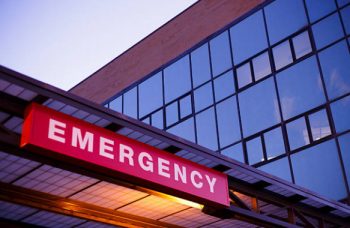Home / Health & Wellness Articles / Addiction /
How to Recognize and Respond to Opioid Overdose

The U.S. opioid crisis has become a more prominent issue over the last few years, and for good reason. Since 1999, more than 930,000 people have died in the U.S. from drug overdose. According to the CDC, there were more than 100,000 overdose deaths that occurred in the U.S. and opioids were involved in over 68,000 of those deaths.
Unfortunately, overdose is still a huge concern, and there are many lives being impacted. There is hope and there is still much to be done to address this issue. One of the best ways someone can help is by knowing the signs of opioid overdose and the steps to take when someone overdoses.
Signs of opioid overdose:
While someone experiencing an overdose may not have every symptom, the appearance of any of these symptoms is cause for concern.
- Slow or irregular breathing
- Cold, clammy skin
- Blue or grey colored skin
- Constricted, small “pinpoint” pupils
- Blue lips or fingertips
- Nausea and vomiting
- Nodding off and sleeping
- Unresponsiveness
Ways to help someone who has overdosed from opioids:
Once a person has overdosed, they cannot help themselves. It is vital for others to know how to help someone who overdoses – it can save their life.
- Always first: call 911. Calmly explain where you are and the signs you are seeing. Calling 911 will ensure that they will get the best medical help as soon as possible, and they will guide you through ways to help your loved one.
- Keep them engaged. Try to keep the person’s mind active by asking questions or trying to make conversation. It is best that they stay awake.
- Rub their sternum. Giving sternum rubs can help their body’s essential functions return to operating as normal.
- Perform CPR if qualified. If your loved one is not breathing, performing CPR is the best way to help. Continue performing CPR until professional medical help arrives – even if they never respond, this gives them a better chance of survival.
- Administer NARCAN (naloxone) if available. This is the quickest way to counteract an overdose. While this will reverse their overdose symptoms, it isn’t a substitute for emergency medical care, as there is still the possibility that they will relapse into respiratory depression. Be wary of the immediate results of NARCAN, as it will put the body into withdrawal. Your loved one may not feel good after you use it, but it can save their life.
If you or a loved one is struggling with substance use disorder, Centerstone can help. For more information about our addiction and recovery program call 1-877-HOPE123 (877-467-3123).


